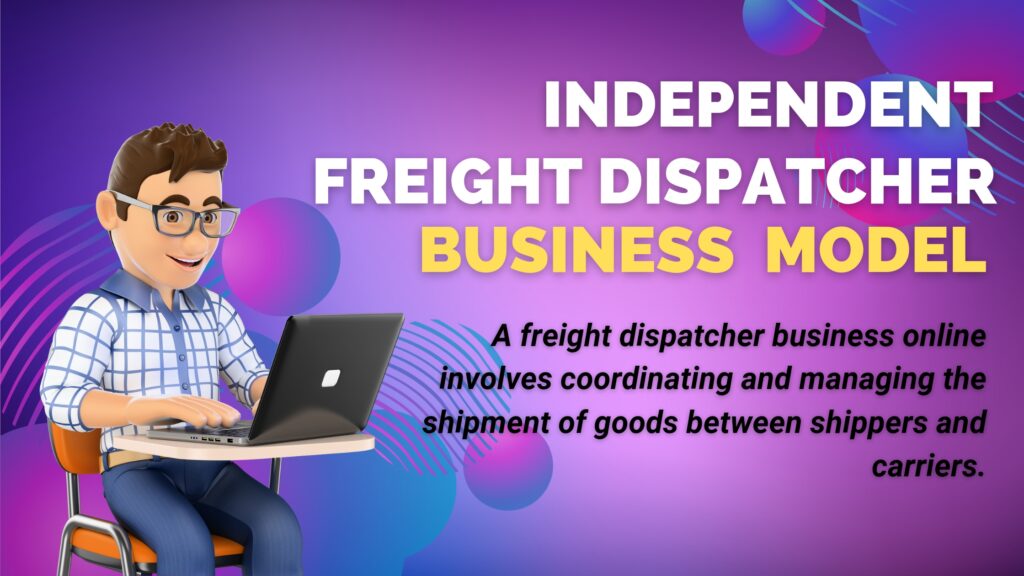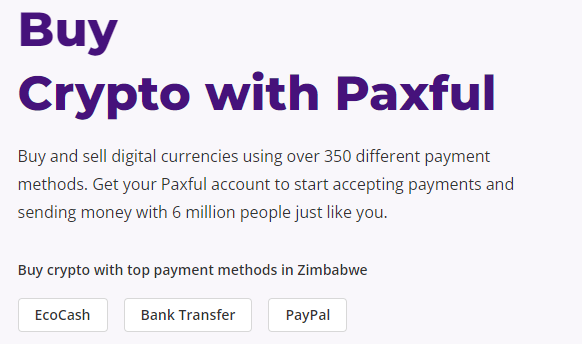How to become a freight dispatcher Starting a freight dispatcher business online can be a lucrative opportunity for those who are interested in the logistics industry. With the right approach and strategies, anyone can establish and run a successful freight dispatching business. In this guide you will learn everything that can help you start a freight dispatcher business online.
What You Need to Know Before Starting a Freight Dispatcher Business Online
Understanding the freight dispatching business

Before you start your freight dispatcher business, it’s important to understand what it entails. A freight dispatcher business online involves coordinating and managing the shipment of goods between shippers and carriers. This is done through a web-based platform, which allows the dispatcher to communicate with both parties, track shipments, and ensure that deliveries are made on time. The role of a freight dispatcher is to act as a liaison between shippers and carriers and ensure that the entire shipping process runs smoothly. By providing a valuable service to both parties, freight dispatchers can earn a profit by charging fees
Advantages of starting a freight dispatcher business online
One of the biggest advantages of starting a freight dispatcher business online is that it allows you to work from home. This means that you can save on rent and other overhead expenses associated with running a traditional brick-and-mortar business. Additionally, starting an online freight dispatching business allows you to access a wider range of potential clients.
Disadvantages of starting a freight dispatcher business online
The biggest disadvantage of starting a freight dispatcher business online is that the competition is fierce. There are many established companies in the market, and it can be difficult to stand out. Additionally, you will need to invest in marketing and advertising to reach potential clients.
Step by Step guide to be successful as a freight dispatcher business online

How to Create a Business Plan for Your Freight Dispatcher Business Online
A business plan is a critical document that outlines your goals, strategies, and financial projections. It is essential for securing funding and guiding your business operations. Your business plan should include information on your target market, marketing strategies, services, pricing, and financial projections.
Obtaining funding
Starting a freight dispatcher business can be expensive, and you may need to obtain funding to cover your startup costs. You can consider obtaining funding from banks, investors, or crowdfunding platforms. Be sure to include your funding needs in your business plan.
Obtaining the necessary licences and permits
To operate a freight dispatcher business, you will need to obtain the necessary licences and permits. The requirements may vary by state, so be sure to check with your local government to ensure that you are in compliance.
Choosing your niche
There are several niches within the freight dispatching industry, including truckload, LTL, flatbed, and intermodal. Choosing a niche can help you focus your services and target your marketing efforts.
Building a website
Building a website is essential for establishing an online presence and attracting clients. Your website should include information on your services, pricing, and contact information. Take more time on SEO to improve your website’s visibility in google search engine results.
Marketing and advertising
Marketing Strategies for Promoting Your Freight Dispatcher Business Online
Here is How to Build a Strong Online Presence for Your Freight Dispatcher Business. Marketing a freight dispatcher business online can help increase brand awareness, attract new clients, and grow the business. Here are some of the best ways to market a freight dispatcher business online:
Search Engine Optimization (SEO):
Optimising your website for search engines can help your business rank higher in search results, making it easier for potential clients to find you online. This can be done through keyword research, optimising website content, and building quality backlinks.
Social Media Marketing:
Social media platforms such as LinkedIn, Twitter, and Facebook can be used to connect with potential clients, share industry news, and promote your services. Creating and maintaining an active social media presence can help build brand awareness and drive traffic to your website.
Content Marketing:
Creating high-quality content such as blog posts, videos, and infographics can help establish your business as an industry leader and attract potential clients. This can also help improve your website’s SEO and drive traffic to your site.
Paid Advertising:
Paid advertising options such as Google Ads and social media ads can help increase visibility and drive traffic to your website. This can be especially effective when targeting specific industries or geographic locations.
Referral Marketing:
Word of mouth is a powerful marketing tool, and asking satisfied clients for referrals can help attract new business. You can also consider offering referral incentives to encourage clients to refer others to your business.
Email Marketing:
Sending regular newsletters and promotional emails to clients and subscribers can help keep your business top of mind and promote your services.
Overall, a combination of these marketing strategies can be effective for promoting a freight dispatcher business online. It’s important to track and analyse your marketing efforts to determine which strategies are most effective for your business.
How to Find and Manage Carriers and loads for Your Freight Dispatcher Business Online
One of the most important aspects of a freight dispatcher business is finding loads and carriers. You can find loads and carriers through load boards, freight brokers, or by developing relationships with shippers and carriers directly.
There are several websites where freight dispatchers can find loads and carriers for their business online. Some of the popular websites include:
Truckstop.com
Freightquote.com
J.B. Hunt 360
Convoy
Uber Freight
Loadsmart
Transfix
Freightera
123Loadboard
These websites provide a platform for shippers and carriers to connect with freight dispatchers, making it easier for them to find loads and carriers for their business. Some of these websites also offer additional services, such as load tracking, payment processing, and insurance, which can be beneficial for freight dispatchers. It is important for freight dispatchers to research and compare these websites to determine which ones best meet their needs and budget.
Negotiating rates
Negotiating rates with shippers and carriers is an essential part of a freight dispatcher’s job. You will need to have strong negotiation skills and be able to balance the needs of both parties.
Dispatching and tracking shipments
Once you have secured a shipment, you will need to dispatch it to the carrier and track it until it reaches its destination. You can use software to manage your dispatching and tracking operations.
There are several freight dispatching software options available for freight dispatchers to choose from. Here are some of the best software options and why they are beneficial for dispatchers:
TruckLogics:
This software is ideal for small and medium-sized dispatching businesses as it is affordable and user-friendly. It offers features such as load tracking, dispatch management, invoicing, and document management.
Tailwind
Transportation Software: This software is designed to manage all aspects of freight dispatching, including load planning, dispatching, billing, and accounting. It offers a user-friendly interface and integrates with popular accounting software.
Aljex:
This software offers a comprehensive solution for dispatching businesses, including dispatch management, load tracking, and document management. It also includes features for carrier management, accounting, and reporting.
ITS Dispatch:
This software is designed to streamline dispatching operations by offering features such as load management, dispatching, invoicing, and document management. It also integrates with popular accounting software.
McLeod Software:
This software is ideal for larger dispatching businesses and offers a range of features such as dispatch management, load tracking, carrier management, and accounting. It also offers advanced reporting capabilities and integrates with other business systems.
Overall, the best freight dispatching software will depend on the size and specific needs of the dispatching business. However, these software options are popular among dispatchers due to their user-friendly interfaces, comprehensive features, and integrations with other business systems.
Managing cash flow
Managing cash flow is essential for ensuring the long-term success of your business. You will need to ensure that you have enough cash on hand to cover your expenses
The Importance of Customer Service in Your Freight Dispatcher Business Online
Qualifications:
Strong organisational and time management skills.
Excellent communication and negotiation skills.
Knowledge of the logistics and transportation industry.
Ability to handle high-pressure situations and problem-solve quickly.
Basic computer skills, including proficiency in Microsoft Office and dispatching software.
Experience in dispatching or transportation management preferred.
Common Mistakes to Avoid When Starting a Freight Dispatcher Business Online
Starting a freight dispatcher business online can be an exciting and rewarding venture, but it’s important to avoid common mistakes that can hinder success. Here are some common mistakes to avoid when starting a freight dispatcher business online:
Underestimating Startup Costs:
Starting a business needs a significant investment of time and money. Make sure you have a clear understanding of the startup costs involved, including licensing fees, insurance costs, software expenses, and marketing expenses.
Failing to Develop a Business Plan:
A solid business plan is for any new business. This should include a detailed description of your services, a market analysis, financial projections, and a marketing strategy.
Not Understanding Industry Regulations:
The transportation industry is heavily regulated, and it’s important to understand and comply with all applicable regulations. Failing to do so can result in fines, penalties, or even legal action.
Overextending Too Quickly:
Growing your business too quickly can lead to operational challenges and financial strain. Focus on building a solid foundation before expanding too quickly.
Ignoring Carrier Relationships:
Building strong relationships with carriers is essential for success in the freight dispatcher business. Don’t make the mistake of treating carriers as disposable resources. Nurture those relationships and treat carriers as valuable partners.
Failing to Leverage Technology:
Technology and software are critical for running a successful freight dispatcher business online. Make sure you’re investing in the right tools to manage operations, communicate with carriers, and find clients.
Not Focusing on Marketing:
Marketing is essential for building brand awareness and attracting new clients. Don’t make the mistake of neglecting marketing efforts in the early stages of your business.
Starting a freight dispatcher business online can be challenging, but by avoiding these common mistakes, you can position your business for success. By focusing on building a solid foundation, complying with regulations, nurturing relationships, and investing in the right tools, you can create a thriving business in the transportation industry.
Growing Your Freight Dispatcher Business Online: Tips for Scaling and Expansion.
Develop a Growth Plan:
To grow your business, you need to have a clear plan for expansion. This should include identifying new markets and target clients, as well as developing new services to meet the needs of your existing clients.
Build a Strong Reputation:
Word of mouth is a powerful tool in the transportation industry. Focus on building a reputation for excellence and reliability to attract new clients and retain existing ones.
Invest in Technology:
As your business grows, so does the need for technology and software to manage operations. Invest in the right tools to streamline processes and improve efficiency.
Hire the Right Team:
As your business expands, you’ll need to hire additional staff to manage operations. Be selective in your hiring process and focus on finding individuals with the right skills and experience to support your business growth.
Leverage Strategic Partnerships:
Building strategic partnerships with carriers, shippers, and other businesses in the transportation industry can help you expand your reach and offer new services to clients.
Diversify Your Services:
Offering a range of services can help you attract new clients and retain existing ones. Consider expanding into new areas, such as logistics, warehousing, or customs brokerage.
Focus on Marketing:
As your business grows, it’s important to continue investing in marketing efforts to attract new clients and build brand awareness.
Scaling and expanding your freight dispatcher business online takes time and effort, but by following these tips, you can position your business for success. By focusing on building a strong reputation, investing in technology, hiring the right team, and leveraging strategic partnerships, you can grow your business and become a leader in the transportation industry.
Best countries to do freight dispatcher business
When it comes to doing freight dispatching business, some of the best countries to consider are those with strong economies, extensive transportation networks, and a favourable business environment. Here are some countries that you may want to consider. these are just a few examples, and there are many other countries that may also be suitable for freight dispatching businesses depending on your specific needs and preferences.
United States:
The US is a top destination for freight dispatching businesses due to its large and diverse economy, advanced logistics infrastructure, and favourable business environment.
China:
As the world’s largest exporter, China is a major player in the global freight industry. It has a vast transportation network and a large workforce, making it an attractive destination for freight dispatching businesses.
Germany:
Germany is known for its efficient logistics and transportation infrastructure, making it a popular destination for freight dispatching businesses. It is also home to many large logistics companies.
United Arab Emirates:
The UAE is a hub for logistics and transportation in the Middle East, with a strategic location between Asia, Europe, and Africa. It has a well-developed infrastructure and a favourable business environment.
Canada:
Canada is a large and developed country with a strong economy and extensive transportation network. It has a favourable business environment and is known for its friendly and welcoming culture.
Australia:
Australia is a large and prosperous country with a well-developed transportation infrastructure and a strong economy. It is a popular destination for freight dispatching businesses due to its strategic location in the Asia-Pacific region.
United Kingdom:
The UK has a long history of trade and commerce and is home to many large logistics companies. It has a well-developed transportation infrastructure and a favourable business environment.
FAQs:
What is the role of a freight dispatcher?
A freight dispatcher is responsible for coordinating shipments between shippers and carriers. They act as a liaison between the two parties and are responsible for ensuring that the shipment is picked up and delivered on time.
How much money can I make as a freight dispatcher?
The income of a freight dispatcher can vary depending on several factors, including the number of clients, types of services provided, and fees charged. According to the Bureau of Labor Statistics, the median annual wage for transportation, storage, and distribution managers, including freight dispatchers, was $97,630 in May 2020.
What type of equipment do I need to start a freight dispatching business?
To start a freight dispatching business, you will need a computer, internet connection, and dispatching software. You may also need a printer, phone line, and office supplies.
How do I find clients for my freight dispatching business?
You can find clients for your freight dispatching business through online marketing, networking, and referrals. You can also consider attending industry conferences or joining industry associations to meet potential clients.
Do I need a licence to start a freight dispatching business?
The requirements for a licence may vary by state, so be sure to check with your local government to ensure that you are in compliance. You may also need to obtain a Motor Carrier Operating Authority (MC Number) from the Federal Motor Carrier Safety Administration (FMCSA).
How do I set my prices for freight dispatching services?
Your pricing will depend on several factors, including the type of services provided, market demand, and competition. Consider researching the prices charged by other freight dispatching companies in your area to set competitive rates.
How do I handle disputes between shippers and carriers?
Handling disputes between shippers and carriers can be challenging. You will need to have strong negotiation and problem-solving skills and be able to balance the needs of both parties. Consider developing policies and procedures for handling disputes and having a clear communication plan in place.
Also Read – How To Create Amazon Affiliate Site : 6 Steps To Start Affiliate Marketing Business














